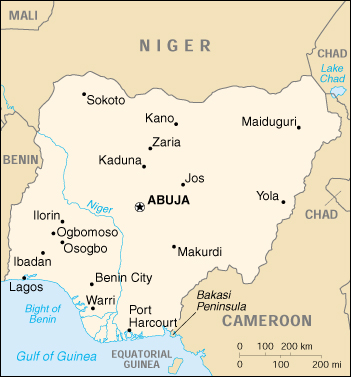

Status Quo Side: Nigeria
Non-Status Quo Side: Eastern region (Biafra)
Region: Africa
Conflict Type: External Intervention
Issues in Dispute: Ethnic, Independence
After Nigerian independence in October 1960 racial, religious, and political rivalries created severe problems. Resentment of Northern domination led to an Eastern (Ibo) coup in January 1966, the break-up of the Federation, an army mutiny in January 1966 which reinstated a non-Muslim Northerner General Yakubu Gowon, northern riots leading to a virtual massacre of resident Ibos, and an upsurge of Eastern tribalism. Gowon announced a plan for a 12-state Nigeria on May 27. In April Easterners under Col. Odumegwu Ojukwu took control of federal services in their region.
An independent Republic of Biafra was proclaimed. Gowon ordered immediate mobilization and economic sanctions to thwart secession, then implemented changes permitting more local autonomy.
Federal troops attacked. OAU mediation efforts, to which the UN deferred, were unavailing. Throughout, Gowon refused negotiations unless the secession ended, while Ojukwu refused to negotiate without a cease-fire. Nigeria had support from all but four OAU members and received arms from the UK and USSR. Biafran arms came from Portugal, France, and reportedly South Africa and Rhodesia: both sides used foreign mercenaries. Civilian suffering led to an international relief effort. Peace moves, begun secretely in 1968, became official in October 1969.
Biafra capitulated after losing its last airstrip.
A formal surrender was signed whereby the Republic of Biafra ceased to exist.